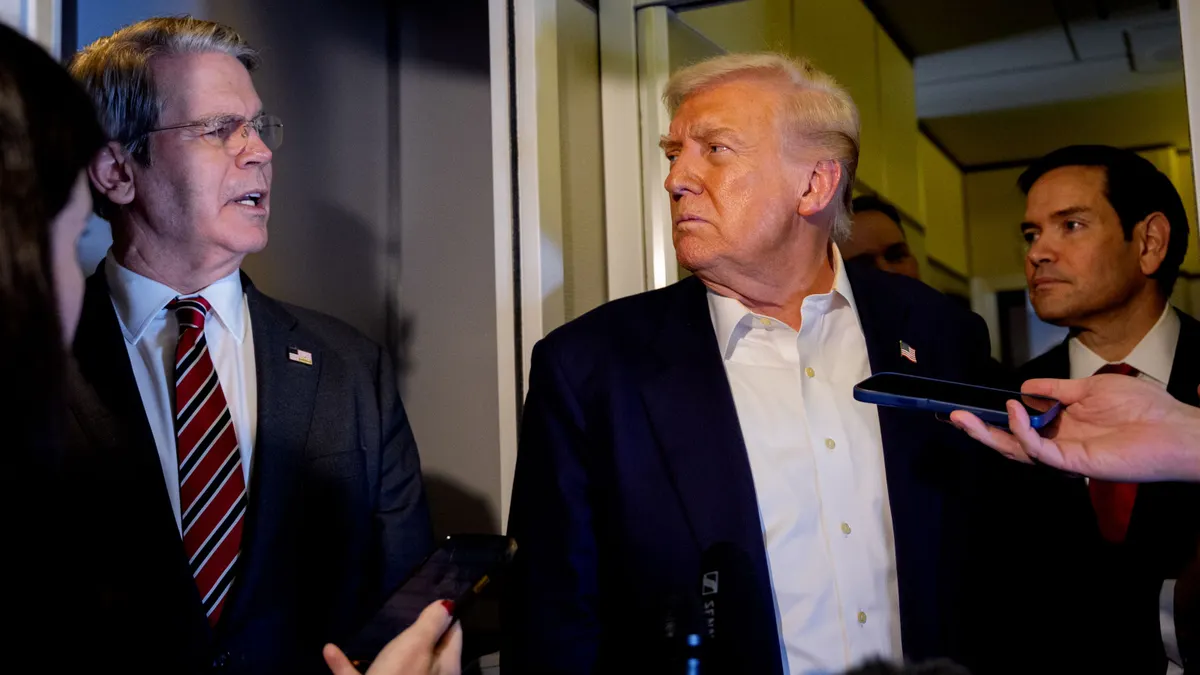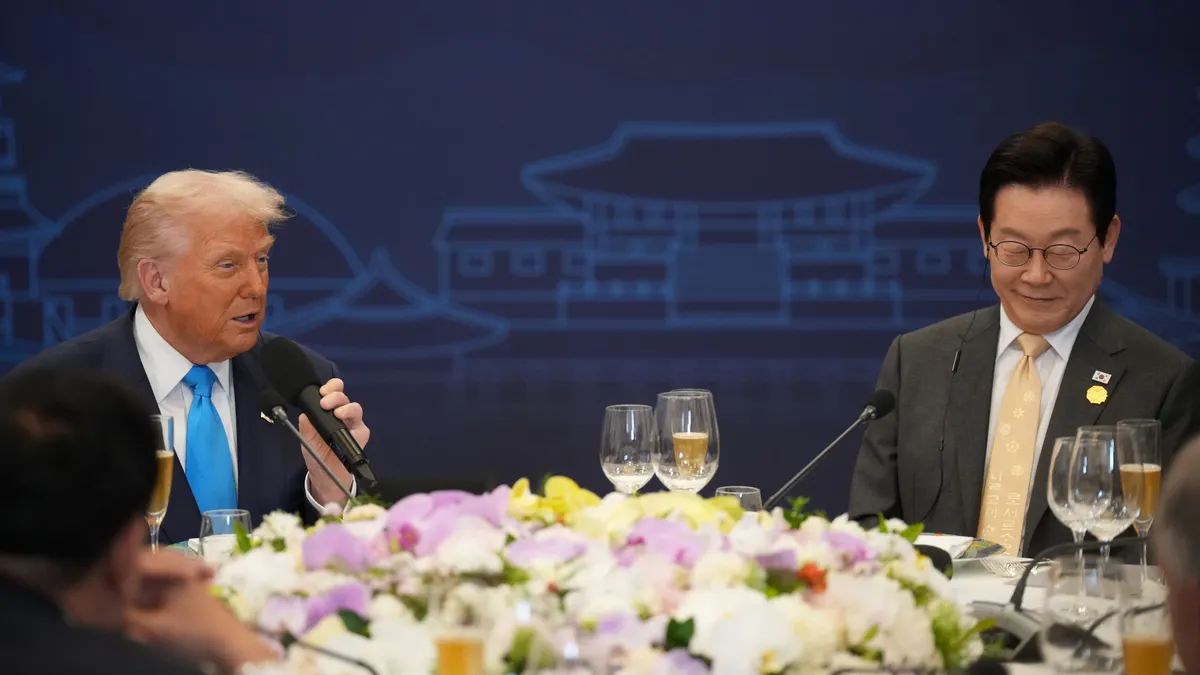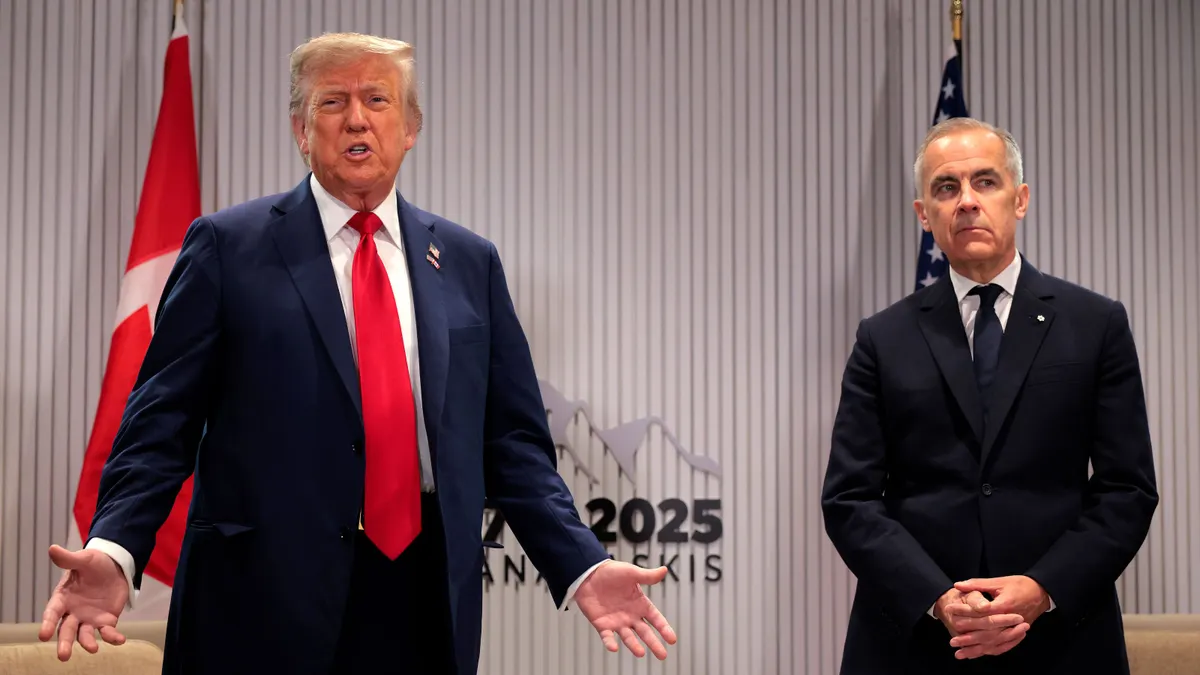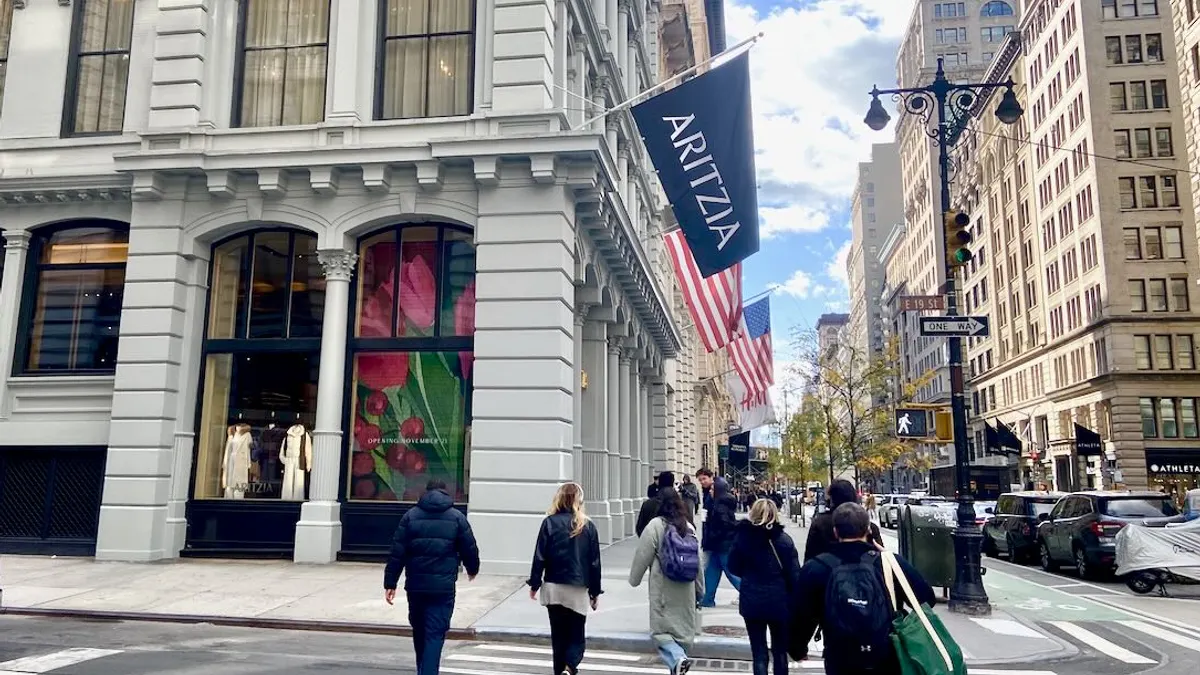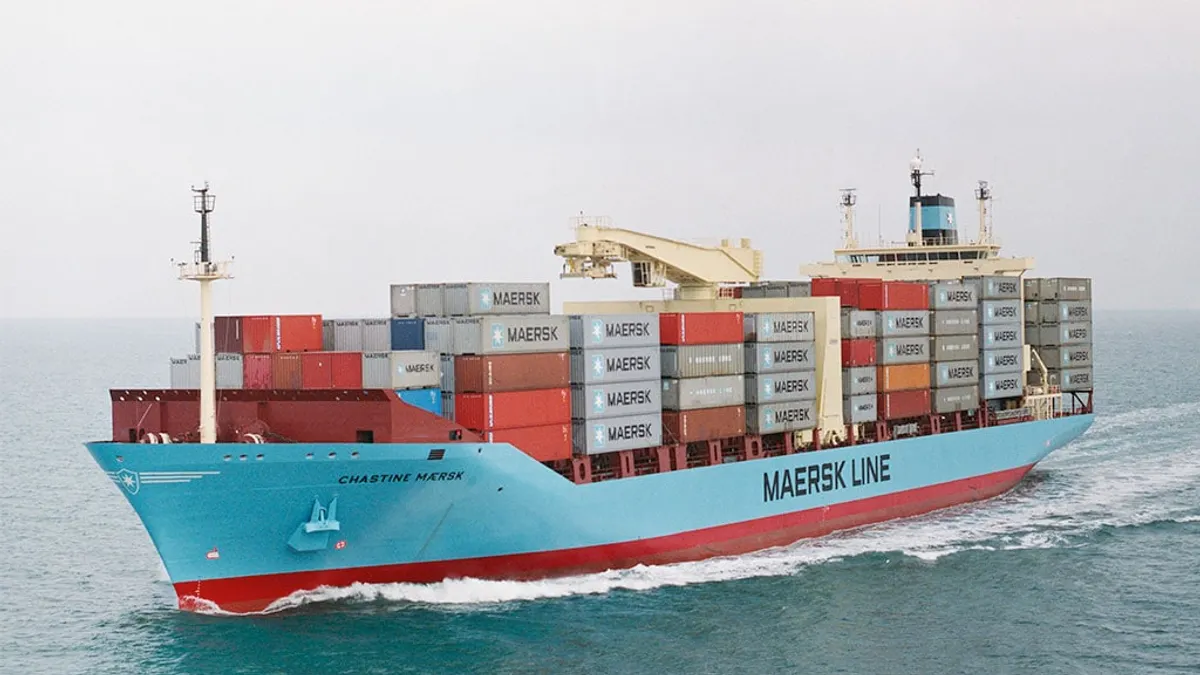The United States shored up several trade relationships in Southeast Asia and may be nearing a formalized agreement with China after negotiations at the Association of Southeast Asian Nations summit in Malaysia this weekend.
On Sunday, the U.S. announced trade agreements with Malaysia and Cambodia while securing framework deals with Thailand and Vietnam. The terms of each pact cement previously announced tariff rates on imports to the U.S. from each country while expanding market access for U.S. exports.
In addition, per the agreements, certain goods will be eligible for a 0% rate in accordance with an executive order Trump signed in September. In the order, Trump provided tariff relief across a swath of product categories for countries that signed trade agreements with his administration.
Meanwhile, the U.S. Secretary of Treasury Scott Bessent and China Vice Premier He Lifeng held negotiations at the summit as the two countries pursue a tariff deal.
“We discussed a wide variety of issues, from the rare earth magnets to trade, to substantial purchases of American agricultural products, to the Chinese helping us in this fentanyl crisis that we have in the U.S.,” Bessent said in a CBS News interview Sunday.
Here’s everything you need to know from a busy weekend in trade negotiations:
China trade agreement on track?
Just days before Trump and China President Xi Jinping are set to meet in South Korea, officials from both countries indicated that a truce has been reached between the trading partners.
U.S. Treasury Secretary Scott Bessent told both NBC News and ABC News Sunday that the two sides had established a “substantial framework” during negotiations held in Malaysia over the weekend. China’s Ministry of Commerce confirmed the news in a statement Sunday.
Per Bessent, the framework would cancel an additional 100% tariff on imports from China that was set to begin Nov. 1. The Secretary also said on ABC’s “This Week” that China would delay implementation of recently announced rare earth export controls by a year.
He also hinted that the current 90-day pause on retaliatory tariffs implemented by both countries this spring could be extended past the current Nov. 10 expiration date.
“We have been rolling the tariffs quarterly,” Bessent said in the ABC interview. “So, we agreed on that.”
Final approval of any pact awaits Thursday’s meeting between Trump and Xi during the Asia-Pacific Economic Cooperation summit in South Korea.
“I'm not going to get ahead of the two leaders who will be meeting in Korea on Thursday, but I can tell you we had a very good two days,” Bessent said in the CBS News interview.
Vietnam framework deal focuses on market access, trade barriers
The U.S. and Vietnam have reached a deal framework which aims to give U.S. exporters increased access to the country's market, according to a fact sheet from the Office of the U.S. Trade Representative.
Through the framework, the U.S. has agreed to maintain a 20% reciprocal tariff rate for imports from Vietnam. The U.S. will also identify products that will receive a 0% reciprocal tariff rate, the fact sheet said.
Meanwhile, Vietnam will enable "preferential market access for substantially all U.S. industrial and agricultural exports" by removing tariffs, per a joint statement between the two countries. Additionally, the country will refrain from imposing customs duties on electronics transmissions and will address other non-tariff barriers as well, such as allowing imports of remanufactured goods from the U.S. and accepting vehicles built to U.S. safety and emissions standards.
In a joint effort, the U.S. and Vietnam will also work to increase supply chain resilience, including by addressing duty evasion and cooperating on export controls, the fact sheet said.
The two countries will continue negotiations in the coming weeks as they work to finalize a trade agreement, per the fact sheet.
Thailand to remove tariffs as part of framework deal
The U.S. and Thailand agreed to terms on a framework agreement related to tariffs and other trade policies, according to a fact sheet from the Office of the U.S. Trade Representative.
Should the deal be finalized, the U.S. will maintain a 19% reciprocal tariff rate for imports from Thailand, per the fact sheet. The U.S. will also identify products to receive a 0% reciprocal tariff rate.
Meanwhile, Thailand will remove tariffs from 99% of goods, including U.S. industrial and food and agricultural products, per the fact sheet. Thailand also intends to refrain from imposing non-tariff barriers for U.S. industrial and agricultural exports. This includes accepting vehicles built to U.S. safety and emissions standards and expediting access for U.S. Food Safety and Inspection Service-certified meat and poultry products.
Through the framework, Thailand will also address barriers impacting digital trade, services and investments. Commercial deals between the two countries would also be upheld, including purchasing about $2.6 billion worth agricultural products, such as feed corn and soybean meals, annually, and procuring 80 U.S. aircraft.
Together, the U.S. and Thailand aim to strengthen supply chain resilience, according to the fact sheet. Efforts include addressing unfair trade policies and practices, duty evasion and cooperating on export controls.
Negotiations between the two countries will continue in the coming weeks to finalize a trade deal, per the fact sheet.
Malaysia trade pact covers tariffs, investments
As part of a reciprocal trade agreement with Malaysia, the U.S. will maintain the 19% tariff on imports from the country that has been in force since Aug. 7.
Meanwhile, Malaysia will eliminate tariffs on certain goods immediately and lower duties on others over the next five to nine years. The country also agreed to provide greater market access for a slew of U.S. goods, including agriculture products, fuel and passenger vehicles. Further, Malaysia said it would not implement export controls for critical mineral and rare earth elements destined for the U.S.
Beyond addressing tariffs and market access, the framework also outlines several commercial deals between the two countries. Among them, Malaysia agreed to $70 billion in capital fund investments in the U.S. and to purchase $150 billion worth of U.S. semiconductors, aerospace components and data center equipment. Additional commitments include:
- The purchase of 5 million tonnes per year of liquefied natural gas
- The purchase of $204.1 million of coal and telecommunication products and services
- The procurement of 30 aircraft and an option for an additional 30
The agreement also includes provisions for removing digital trade barriers, protecting labor rights, ensuring intellectual property security, cooperating on national security and developing supply chain resilience. It will go into force 60 days after the countries confirm the completion of domestic legal procedures needed to enact the agreement.
Cambodia agreement cements tariffs, expands market access
The U.S. and Cambodia have reached a reciprocal trade agreement, according to a fact sheet from the Office of the U.S. Trade Representative.
The trade agreement addresses several key areas, including the elimination of tariffs and quotas, increased market access, greater regulatory transparency, improved labor and environmental protections, and national security measures. The pact also includes enforcement mechanisms and cooperative actions for trade compliance.
Per the agreement, the U.S. will establish a revised reciprocal tariff rate on Cambodian goods, which will not exceed 19%. The U.S. may also identify some products that qualify for a 0% reciprocal tariff rate, the fact sheet said.
In return, Cambodia has agreed: 1) to eliminate tariffs on nearly all U.S. goods; 2) to not impose quotas on U.S. imports unless mutually agreed upon; 3) to ensure non-discriminatory market access for U.S. agricultural goods; and 4) to break down non-tariff barriers for industrial goods, such as by accepting U.S. standards for motor vehicles, medical devices and pharmaceuticals; among other trade terms.
Furthermore, Cambodia agreed not to impose non-tariff barriers, such as import licensing, that could restrict U.S. goods. The country would also adhere to U.S. import restrictions on goods and services from other countries and share information about foreign investment activities.
The U.S. and Cambodia expect the agreement to take effect in the coming weeks. Once in force, either party may terminate the agreement with six months’ written notice.


